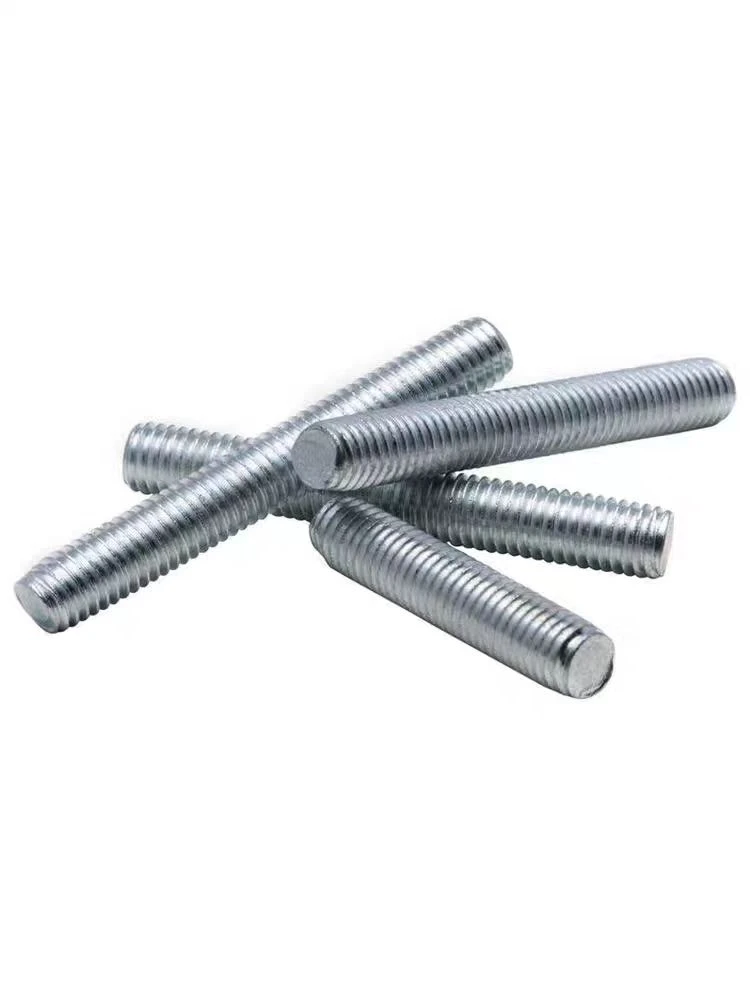

Comparison of Plain Washers and Spring Washers in Fastening Applications
11월 . 08, 2024 14:18 Back to list
Comparison of Plain Washers and Spring Washers in Fastening Applications
Understanding Plain Washers and Spring Washers Essential Components in Mechanical Assemblies
In the world of mechanical engineering and assembly, small components often play critical roles in ensuring the proper functioning and longevity of machines and structures. Among these components, plain washers and spring washers stand out for their unique functions and applications. Understanding the differences, advantages, and appropriate uses of these two types of washers is crucial for engineers, technicians, and anyone involved in assembly work.
What is a Plain Washer?
A plain washer, also known as a flat washer, is a flat disc made of various materials such as metal, plastic, or rubber. The primary function of a plain washer is to distribute the load of a threaded fastener, such as a bolt or a screw, over a larger area. By doing so, it helps prevent damage to the surface being fastened, reduces the likelihood of stripping the threads, and provides a smooth surface for the fastener to bear upon.
Plain washers come in various sizes and materials, making them suitable for a wide variety of applications, from automotive assemblies to construction projects. They are particularly useful when working with softer materials, where a fastener could easily embed itself into the surface, causing damage or misalignment.
What is a Spring Washer?
In contrast, a spring washer is a specially designed component that provides a load-bearing capacity while also offering a degree of flexibility. Spring washers are commonly made from high-carbon steel or other resilient materials and are characterized by their curved shape. This curvature allows the washer to exert a spring force, enabling it to maintain tension on the fastener and prevent loosening due to vibration or thermal expansion.
There are several types of spring washers, including wave washers, split washers (also known as lock washers), and conical washers. Each type serves a specific purpose but generally shares the common goal of providing reliable tension and preventing mechanical failures in dynamic environments.
plain washer and spring washer

Key Differences and Applications
The primary difference between plain washers and spring washers lies in their functionality. Plain washers are mainly used to distribute load and provide surface protection, while spring washers are designed to maintain tension and resist loosening from vibration or movement.
Plain washers are an excellent choice in applications where static loads are present, or where a smooth surface is necessary. For instance, in assembling machinery where components bear heavy loads, plain washers ensure that the surfaces do not deform under pressure.
On the other hand, spring washers are crucial in applications involving moving parts or vibrations. For example, in automotive engines, using a spring washer can help to secure bolts on engine blocks or other moving assemblies where vibrations are prevalent. This helps avoid the nuisance and danger of components becoming loose over time.
Conclusion
In conclusion, both plain washers and spring washers are essential components in mechanical assemblies, each serving distinct but complementary functions. Plain washers excel at load distribution and surface protection, while spring washers offer dynamic tension maintenance to combat loosening due to vibration and movement.
Selecting the appropriate type of washer is critical for ensuring the durability and reliability of an assembly. Engineers and technicians must consider the specific requirements of their applications, including load characteristics, material compatibility, and environmental conditions. By understanding the unique properties and ideal applications of plain and spring washers, one can make informed decisions that enhance the performance and longevity of mechanical systems.
Latest news
-
Hot Dip Galvanized Bolts-About LongZe|High Strength, Corrosion Resistance
NewsJul.30,2025
-
High-Strength Hot Dip Galvanized Bolts - Hebei Longze | Corrosion Resistance, Customization
NewsJul.30,2025
-
Hot Dip Galvanized Bolts-Hebei Longze|Corrosion Resistance&High Strength
NewsJul.30,2025
-
High-Strength Hot-Dip Galvanized Bolts-Hebei Longze|Corrosion Resistance&High Strength
NewsJul.30,2025
-
Hot Dip Galvanized Bolts-Hebei Longze|Corrosion Resistance&High Strength
NewsJul.30,2025
-
Hot Dip Galvanized Bolts - Hebei Longze | Corrosion Resistance, High Strength
NewsJul.30,2025

